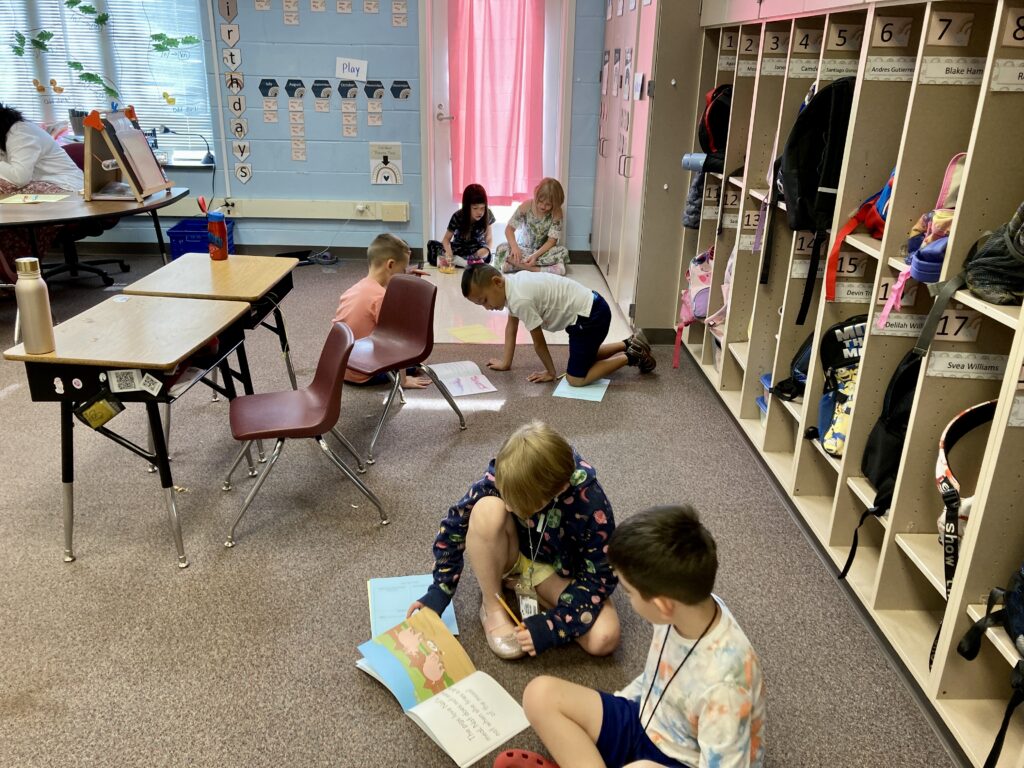5 Key Phonics Strategies for Maximum Success
by David Morgan
We all want to achieve the most for every child, in a practical way for the whole team. I am going to outline some of the key strategies for that below, with an explanation for each.
If you immediately agree with what I am saying on a strategy, just skip to the next one! I am sure some might seem a bit challenging though, in which case the explanation will be useful.
1. Start Phase 2 in Early September
This is really driven by the expectation of the DfE. They like to see an early start to phonics in Reception, so we recommend that you go with that, even if some of the children need some Phase 1 input alongside that. It is quite possible for them to be getting benefit from the main class session, while the intervention time fills in the gaps.
2. Keep the Whole Class Together and in Sequence
In line with the above, we recommend that the whole class is in the teacher-led phonics session each day. This includes even the children joining mid way through the year and the children struggling with EAL challenges.
The reason is that they will be absorbing some or most of the content of the session and can receive some keep-up (or even catch-up) intervention time at another moment in the day.
If you split the weaker learners away from this main session, they will be in catch-up mode permanently. Instead, every child should be exposed to the daily steps of the curriculum in the correct sequence. If they need some extra help, that is a separate task.

3. All Interventions Should Be Teacher-Delivered
The hardest and most important task in the school is the delivery of reading interventions. Handing that task to the least trained and least experienced member of staff is not ideal at all, even if that has been the routine for years. It needs to be done by a trained teacher who has attended our Deep Dive training.
If you have a highly trained specialist TA, with a lot of intervention experience, then it is fine for them to continue doing the interventions, of course. However, it is critical that they attend our Deep Dive training into the causes of reading difficulty, so that they really understand how to get every child progressing normally.
Our All Aboard Phonics Plus manual is unashamedly technical, because the causes of reading difficulty are complex. That is why reading interventions have failed so routinely in the past. Therefore, we would suggest that reading intervention should become a virtually sacred task for all Key Stage 1 teachers. That will have a huge impact and is extremely satisfying too.
4. Move into Phase 5 When Ready
If the assessment data for Phase 4 looks good in March or April, does it make sense to hold the class back from progressing into Phase 5? We don’t think so.
We think it is better to keep the momentum and excitement going. Children like novelty. Keep teaching them new GPCs and keep sharing new books.
It does mean that 5 year-old children who join the school in September might be well behind the rest of their Yr 1 peers, but that can be dealt with. A bit of intense catch-up work with the pictophones and some trainertext will get them progressing fast.
5. Keep Focused on the Basics
- Routine success with phonics comes from getting the basics right.
In our view the 3 key basics are:
- Crisp sounding out of the phonemes, with no schwa sounds added.
- Develop blending confidence with the Wordbreaker exercise routine.
- Routine rereading of each 3-5 word phrase, to build fluency faster.
If those three principles are followed, most of the class will be well ahead of expectations and you can help the minority keep up with some focused, technical interventions using the AAP+ process.
Here at All Aboard we have moved towards a policy on this which is different to the most common classroom practice. Our reasoning is based around what is going to get the best outcome for the children struggling most in the class, because we know that the rest of the class will be fine.
Having a plan for the whole class to be succeeding together at the end of their first two years of literacy development is what fits our mission of 100% success. We believe every child can learn to read without exception.
This policy is also based on the range of practices we have observed operating in different schools and the results achieved by the different approaches.
